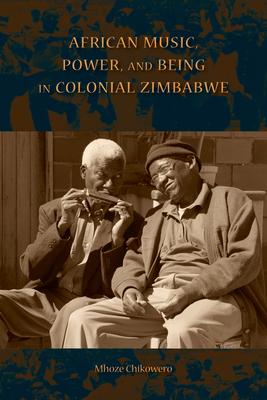In this new history of music in Zimbabwe, Mhoze Chikowero deftly uses African sources to interrogate the copious colonial archive, reading it as a confessional voice along and against the grain to write a complex history of music, colonialism, and African self-liberation. Chikowero's book begins in the 1890s with missionary crusades against African performative cultures and African students being inducted into mission bands, which contextualize the music of segregated urban and mining company dance halls in the 1930s, and he builds genealogies of the Chimurenga music later popularized by guerrilla artists like Dorothy Masuku, Zexie Manatsa, Thomas Mapfumo, and others in the 1970s. Chikowero shows how Africans deployed their music and indigenous knowledge systems to fight for their freedom from British colonial domination and to assert their cultural sovereignty.

African Music, Power, and Being in Colonial Zimbabwe
In this new history of music in Zimbabwe, Mhoze Chikowero deftly uses African sources to interrogate the copious colonial archive, reading it as a confessional voice along and against the grain to write a complex history of music, colonialism, and African self-liberation. Chikowero's book begins in the 1890s with missionary crusades against African performative cultures and African students being inducted into mission bands, which contextualize the music of segregated urban and mining company dance halls in the 1930s, and he builds genealogies of the Chimurenga music later popularized by guerrilla artists like Dorothy Masuku, Zexie Manatsa, Thomas Mapfumo, and others in the 1970s. Chikowero shows how Africans deployed their music and indigenous knowledge systems to fight for their freedom from British colonial domination and to assert their cultural sovereignty.